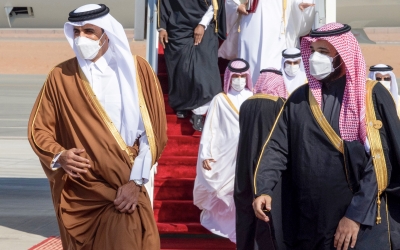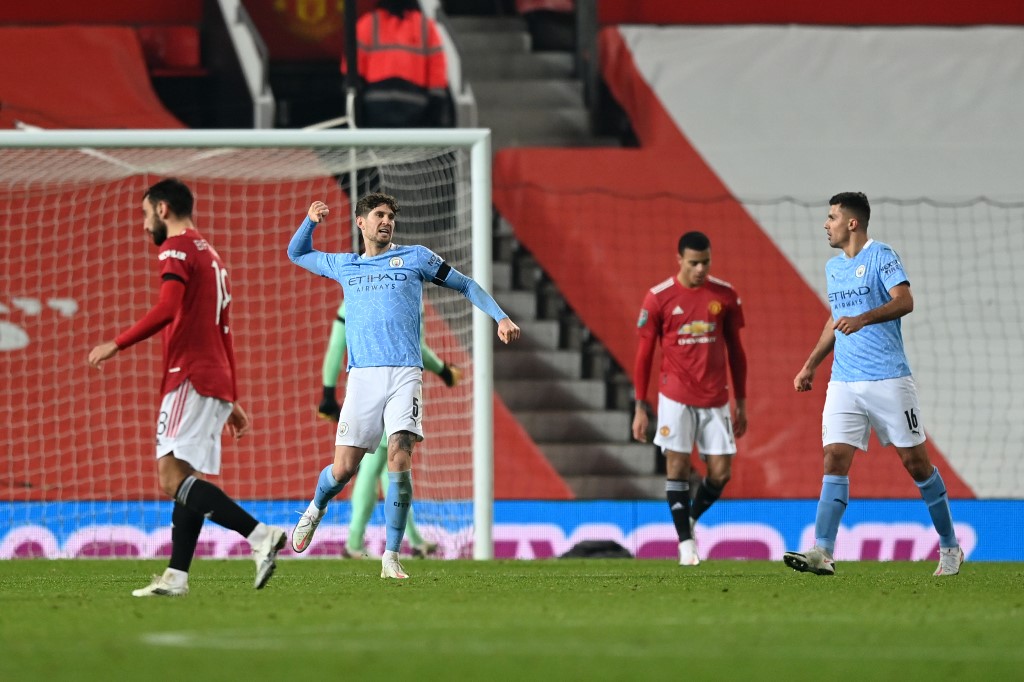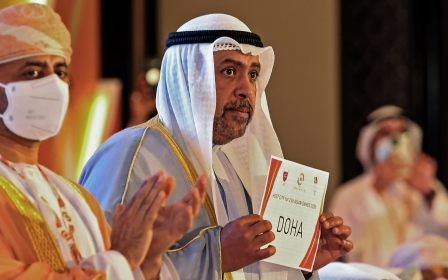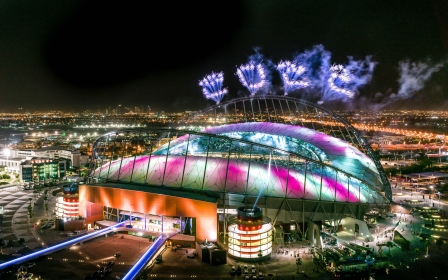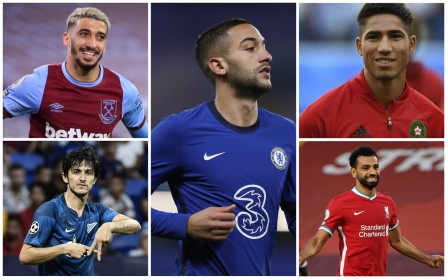Qatar blockade ends: How Gulf detente could impact global football
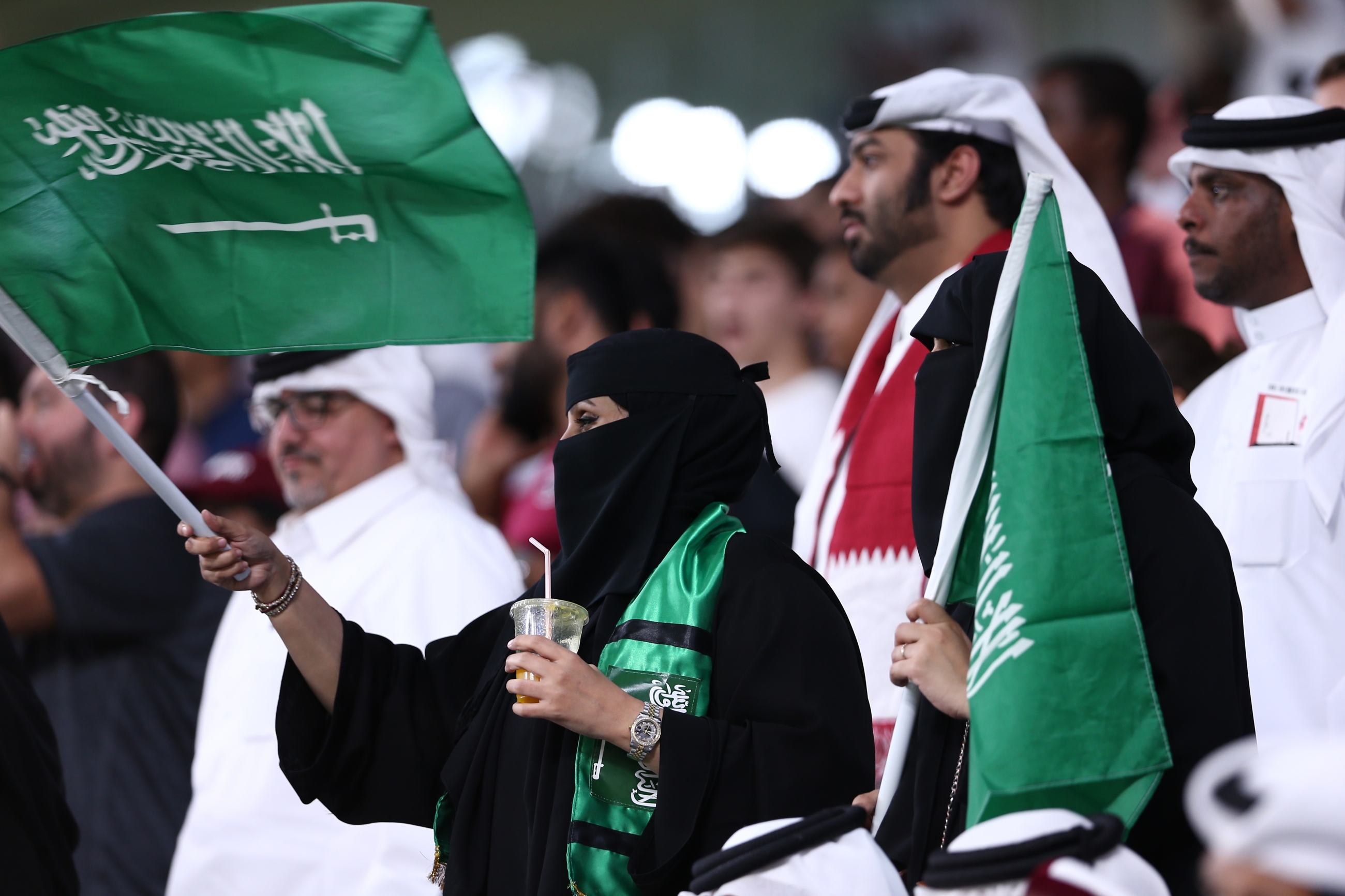
Earlier this week, Saudi Arabia and three of its allies agreed to end a three-and-a-half-year blockade on neighbouring Qatar.
While the decision to restore diplomatic and economic ties will have a huge impact on areas such as aviation, trade and defence, it will also have big implications for sports, and in particular football.
New MEE newsletter: Jerusalem Dispatch
Sign up to get the latest insights and analysis on Israel-Palestine, alongside Turkey Unpacked and other MEE newsletters
From a $1bn sports broadcasting lawsuit to a Premier League club takeover attempt marred by geopolitics, the beautiful game has often served as an arena for Saudi-Qatar rivalry in recent years.
Middle East Eye breaks down some of the key issues at play, and how this week's agreement could affect the world of football in the coming months and years.
BeIn Sports lawsuit against Saudi may be dropped
In 2017, Riyadh, along with the United Arab Emirates, Bahrain and Egypt, severed diplomatic, trade and travel ties with Qatar over claims that Doha supported terrorism - a charge the country has long denied.
The Saudi-led bloc issued a list of 13 demands to the rival emirate, including ending military cooperation with Turkey and limiting trade with Iran.
Among the demands, none of which have officially been met, was an order to shut down Al Jazeera, the media network funded by the Qatari government.
Doha-based sports broadcaster BeIn Media, a former subsidiary and spin-off of Al Jazeera, was not named among the conditions. However, it has also found itself at the heart of the Gulf rift.
Shortly after the blockade was announced in 2017, a pirate network called BeOutQ was launched on the Riyadh-based Arabsat satellite operator, which simulcasted BeIn Sports content and overlaid the logo with its own. The network allowed millions of people to illegally watch live sporting events, such as the English Premier League (EPL), for which BeIn held the exclusive rights to air in the Middle East.
In October 2018, BeIn Sports filed a lawsuit against Saudi Arabia seeking $1bn in damages, in what is believed to be the biggest case of sports piracy ever.
"Quite clearly, we are being unfairly used as a political football in a wider regional dispute," Sophie Jordan, BeIn's executive director of legal affairs, said at the time.
"This case has implications far beyond BeIn. In BeOutQ, Saudi Arabia has created a plague of piracy, and unless the whole sports, entertainment and broadcast industry takes a stand, its impact will be devastating and irreversible."
A damning report by the World Trade Organisation published in June 2020 found that senior Saudi officials promoted BeOutQ.
The ruling made reference to several tweets publicising the pirate network, including from Saud al-Qahtani, who served as a close aide to Saudi Crown Prince Mohammed bin Salman before being implicated in the 2018 murder of Middle East Eye and Washington Post columnist Jamal Khashoggi.
On Tuesday, a source told publisher Sports Business that as part of the end of the blockade, Qatar would have to drop the BeIn Sports lawsuit, as well as two other major legal cases, in exchange for the reopening of the border with Saudi Arabia. No official comment has yet been made on the issue.
The dropping of the lawsuit could pave the way for Saudi Arabia to start airing BeIn Sports once again. Riyadh announced a permanent ban on the broadcaster earlier this year, leaving Saudi citizens with no legal way of watching some of Europe's elite football competitions, including the UEFA Champions League.
Despite the blackout, Saudi Arabia was still included in a recent $500m deal signed by the Qatari network to maintain the rights to air the EPL across the Middle East until 2025.
Newcastle United takeover back on?
The deal to extend BeIn Sports coverage of English football was approved by 19 votes to one last month, with Newcastle United being the only EPL club to vote against it.
The vote suggests that Newcastle United are aggrieved at the role BeIn Sports played in the failed Saudi takeover of the club earlier this year.
A consortium led by the Saudi Public Investment Fund, the country's sovereign wealth fund chaired by the crown prince, launched a £300m ($407m) takeover bid of the northeast club in April. After months of waiting to pass the English Football Association's (FA) owners' and directors' test, the bid was withdrawn in July.
Piracy issues are thought to have played a major role in the failed buyout, with the EPL concerned about the allegations that the Saudi government was directly involved in the theft of its content via BeOutQ.
The deal was also criticised from the outset by human rights advocates, who accused Saudi Arabia of using Newcastle United to "sportswash" its human rights record.
'The Qataris were the major obstacle to the Newcastle takeover, so we could now see it emerge again'
- Nicholas McGeehan, human rights researcher
Newcastle fans of Arab descent from northeast England's historic Yemeni and Muslim communities told MEE that they were "really pleased" the takeover had collapsed, citing Saudi Arabia's military involvement in Yemen.
If the piracy dispute is resolved, the takeover talks could resurface, despite the "sportswashing" accusations.
"The human rights concerns have always been secondary to the Newcastle takeover. There were really clear grounds to use the owners' and directors' test to disqualify the Saudis, but the FA hasn't been keen to do it," Nicholas McGeehan, a director at Fair Square, which monitors human rights abuses in the Gulf, told Middle East Eye.
"The Qataris were the major obstacle to the Newcastle takeover, so we could now see it emerge again."
Newcastle fans angry at the failed takeover have often directed their frustrations on social media at Qatar, posting memes of the Premier League being controlled by Qatari puppeteers.
Earlier this year, MEE reported examples of suspicious pro-Saudi social media activity related to the saga, including two female fans, supposedly from Newcastle, posting the exact same tweet calling the emir of Qatar "ugly" - an unlikely topic of conversation in northeast England.
These may have come from Saudi Arabia's army of thousands of social media bots and trolls known as "the flies," set up by royal court aide Qahtani. There has been speculation about whether these disinformation networks would now become obsolete after this week's agreement with Doha.
World Cup and beyond
The end of the blockade is likely to open up opportunities for Gulf countries to work together in the lead up to the 2022 World Cup in Qatar.
Gianni Infantino, president of football's global governing body Fifa, was in Saudi Arabia this week to witness the signing of the agreement between the former allies. He was criticised by Amnesty International after appearing in a Saudi government promotional video on Thursday, in which he participated in a ceremonial sword dance and praised the kingdom.
"It should be abundantly clear to everyone at Fifa that Saudi Arabia is attempting to use the glamour and prestige of sport as a PR tool to distract from its abysmal human rights record," Amnesty said in a statement.
Infantino had once floated the idea of an expanded 48-team World Cup across the whole region, with neighbouring Bahrain, Kuwait, Saudi Arabia and the UAE also hosting games. The plans were strongly opposed by Qatar, and were seen as an attempt to hijack the tournament.
"Qatar will still want to hold onto the World Cup and resist expansion as aggressively as they resisted before. But it's certainly true that the Gulf states working together in harmony makes it even more difficult to make progress on human rights than when they are divided," McGeehan said.
'The fact that Saudi Arabia and Qatar have been feuding has been detrimental to both; they both managed to harm each other’s reputations'
- Nicholas McGeehan, researcher
"The very fact that Qatar has labour reforms in place for 2022 - which have been ineffective and disappointing - is due to the fallout. They wouldn't have put these in place if not for the Gulf crisis."
Stalled reforms
Doha has announced a number of reforms in recent years, including a fund to support the payment of unpaid wages and the abolition of the kafala system, which ties migrant workers' visas to their employers.
However, a report by Human Rights Watch in August found that reforms have been largely unsuccessful, with many migrant workers still facing withheld salaries and poor working conditions.
McGeehan said that if the end of the blockade leads to more sporting tournaments coming to the region, it would lead to "big problems" on labour issues.
Last month, Doha and Riyadh came to an agreement to host consecutive versions of the Asia Games in 2030 and 2034, in a rare show of unity between the then-rival nations.
Both are candidates to host the 2027 Asian Cup, the continent's biggest football tournament, and could now team up to compete against a bid by India.
"These Gulf states all value sports as a means of soft power," McGeehan said. "The fact that Saudi Arabia and Qatar have been feuding has been detrimental to both; they both managed to harm each other's reputations. We might see less of that now.
"Sportswashing concerns will remain, but it might play out differently in terms of them not trying to trip each other up."
This article is available in French on Middle East Eye French edition.
Middle East Eye delivers independent and unrivalled coverage and analysis of the Middle East, North Africa and beyond. To learn more about republishing this content and the associated fees, please fill out this form. More about MEE can be found here.


